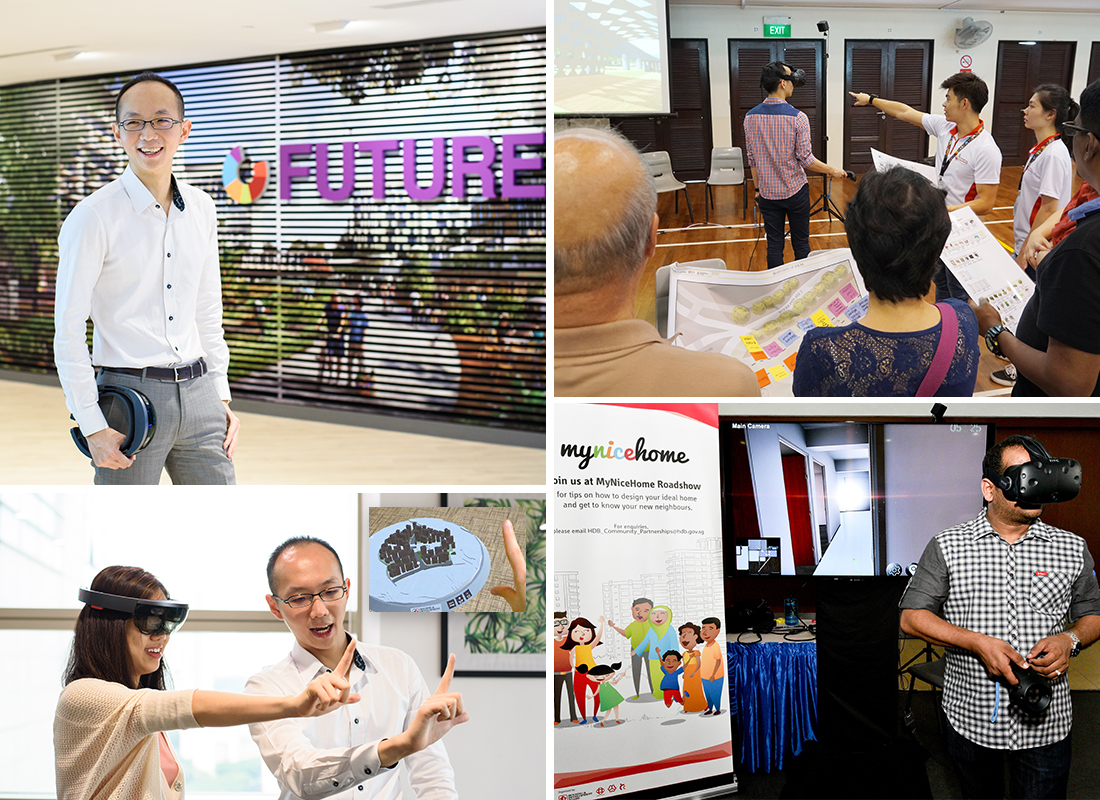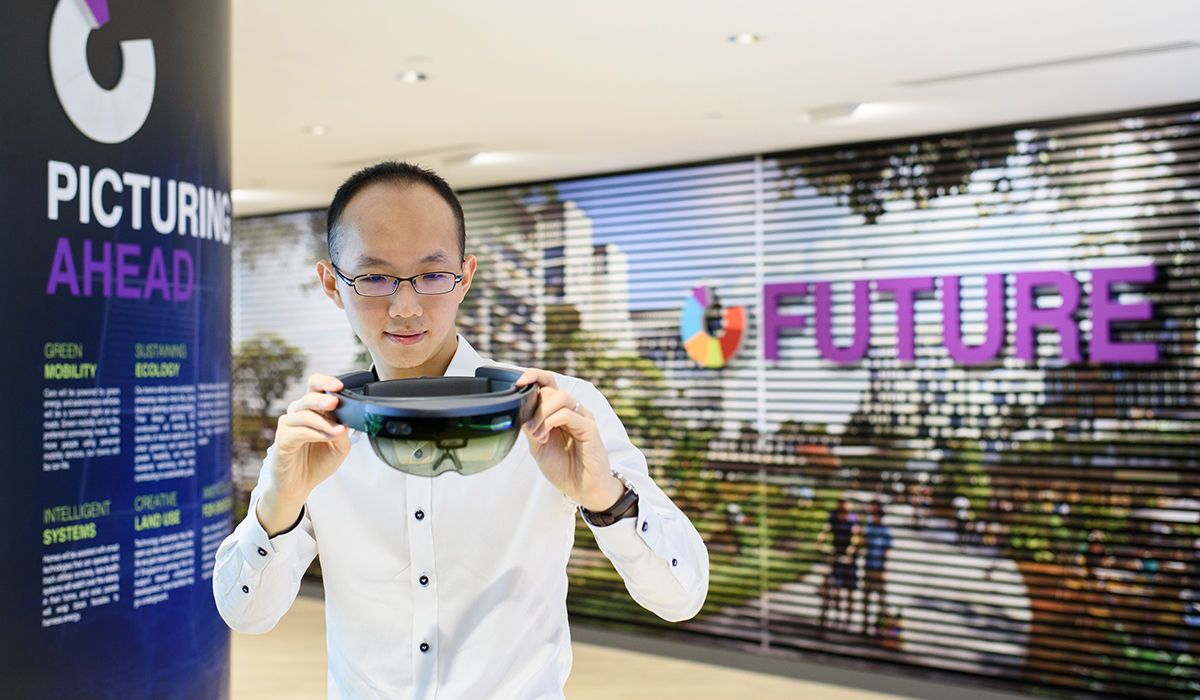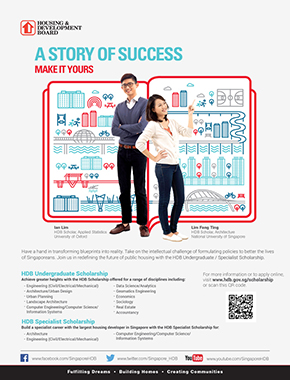Lee Chen Tong is a recipient of the HDB
Undergraduate Scholarship and holds a
Bachelor of Computing (Information Systems)
from the National University of Singapore as
well as a Master of Philosophy (Management)
from the University of Cambridge.
Responsible for housing the nation, HDB has more than delivered on its mission since its formation in 1960. Today, HDB flats are home to over 80% of Singapore’s resident population, with about 90% of these resident households being proud owners of their own homes.
As a young boy, Lee Chen Tong used to listen to his father speak fondly of HDB’s meticulous and progressive attitude towards nation-building. Wanting to be able to excite people through technology, when he came across HDB’s call for scholarship applications on the Brightsparks portal, he sent in his application and has never looked back.
You mentioned a background in Information Systems, which gave you a wider variety of potential options. Why did you eventually opt for public housing and HDB?
My dad worked in HDB and would often recount stories of his time there to my brothers and me. I enjoyed these sessions a lot and was amazed by how thorough our forefathers had been with the plans for Singapore’s public housing, and how well-considered the governing policies were. This shaped a lot of my thinking as I explored my career options and ultimately led to my decision to join HDB and make a career here.
How did you discover the HDB Undergraduate Scholarship?
When I was exploring scholarship options, I really wanted to use technology to excite people. So when I came across HDB’s call for scholarship applications on the BrightSparks portal, I decided to give it a shot and I have no regrets at all.

[Top right] Chen Tong knows that there is a limit to what an individual can deliver. So, his goal is to build increasingly stronger
teams and eventually deliver increasingly complex solutions.
[Bottom right] The use of Virtual Reality for the Participatory Design of HDB Community Spaces helps residents visualise proposed redesigns of their common spaces in real-time.
[Bottom left] The Urban Design
application designed
on the HoloLens allows
multiple designers
to work on the same
scene, manipulating
holograms of proposed
building design models
amidst the existing
townscape.
How has your education helped in your career at HDB?
Thanks to my training in Information Systems, I think in a systematical and logical manner. This approach is important when developing enterprise-grade systems, a complex and drawn-out process.
Take the understanding of user business requirements as an example. When helping to develop best practices, an important first step is to review existing workflows and methodology. Here, my interview skills learnt in my undergraduate days come in particularly handy. With these skills, I can elicit key details from users and gain a comprehensive understanding of their business. I am then able to see how their processes could be aided by an appropriate IT solution.
In your role, you are driving the adoption of Geographic Information System (GIS), 3D and immersive technology. How did your colleagues react to these innovations, and how do they benefit flat owners?
An IT solution is only a “solution” if it addresses the needs of its users. Hence, HDB always consults its stakeholders during the design process. Our colleagues have not just been supportive of these new tools, some of them are even champions of these innovations themselves.
The potential applications of GIS, 3D and immersive technology are wide and varied. They encompass Town Planning, Urban Design, Architectural Design, Sales, Maintenance and even Community Engagement. For instance, in Town Planning, these technologies allow planners to more efficiently analyse data such as planning parameters, and compare different planning scenarios. In customer-facing domains such as Community Engagement, the same technologies give our residents a better understanding of the spatial context of their flats, providing a visual representation of the surrounding amenities, flats and carparks.
How has the culture at HDB shaped you as a person and in your career?
HDB is a massive organisation with over 5,000 staff. However, we are united by an overarching sense of purpose, so everyone is aligned towards the same goal. Coupled with the demographic diversity here, HDB feels like one big family.
There is also a healthy culture of continuous learning and innovation. We are constantly challenged to improve the way in which things are done and encouraged to try out new technologies.
The HDB work culture has three different facets – purpose-driven, familial and innovative. In this work culture, I more deeply appreciate the truism that technology is only an enabler. The success of a technological solution depends more on creating the right environment and conditions for use than any function of the technology itself. This has fundamentally changed the way I look at my career in technology and the skillsets required for excellence.
What are your career aspirations?
I am passionate about developing IT solutions and finding meaning in delivering effective solutions that benefit people. Yet there is a limit to what an individual can deliver. Effective IT solutions to handle the complexities of the modern world can only be created by effective teams that are well-coordinated. Building stronger teams that deliver more effective solutions is my goal.
What advice would you give to aspiring scholars looking to join HDB?
Keep an open mind and adopt a growth mindset. HDB is an organisation with well-established processes and systems that are designed specifically to handle the unique contextual challenges it faces. One’s attitude and mindset are the determining factors of success, so in HDB, you can grow as much as you can go.


